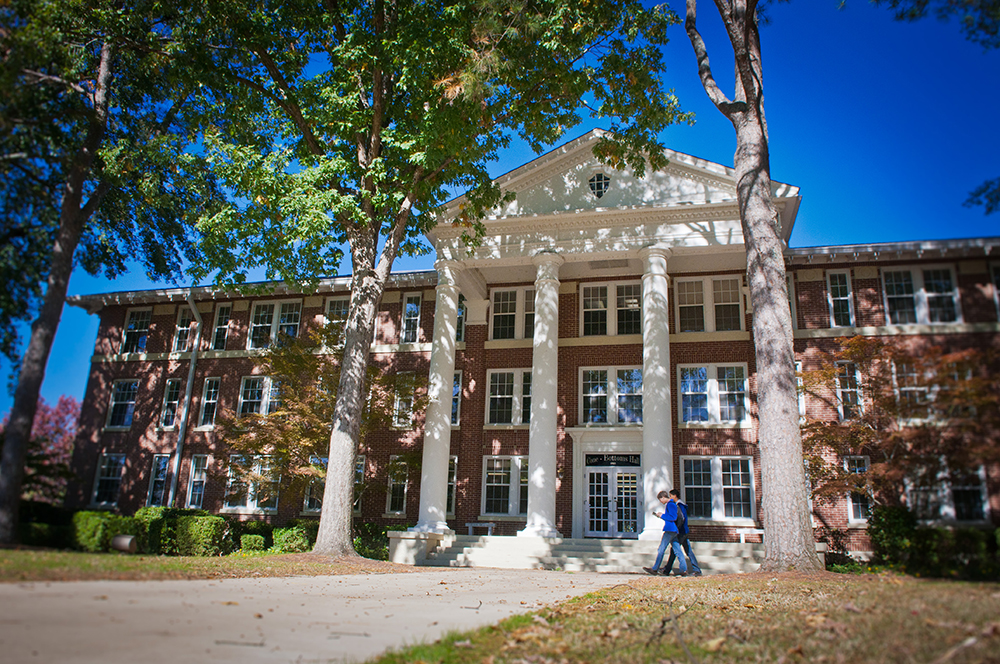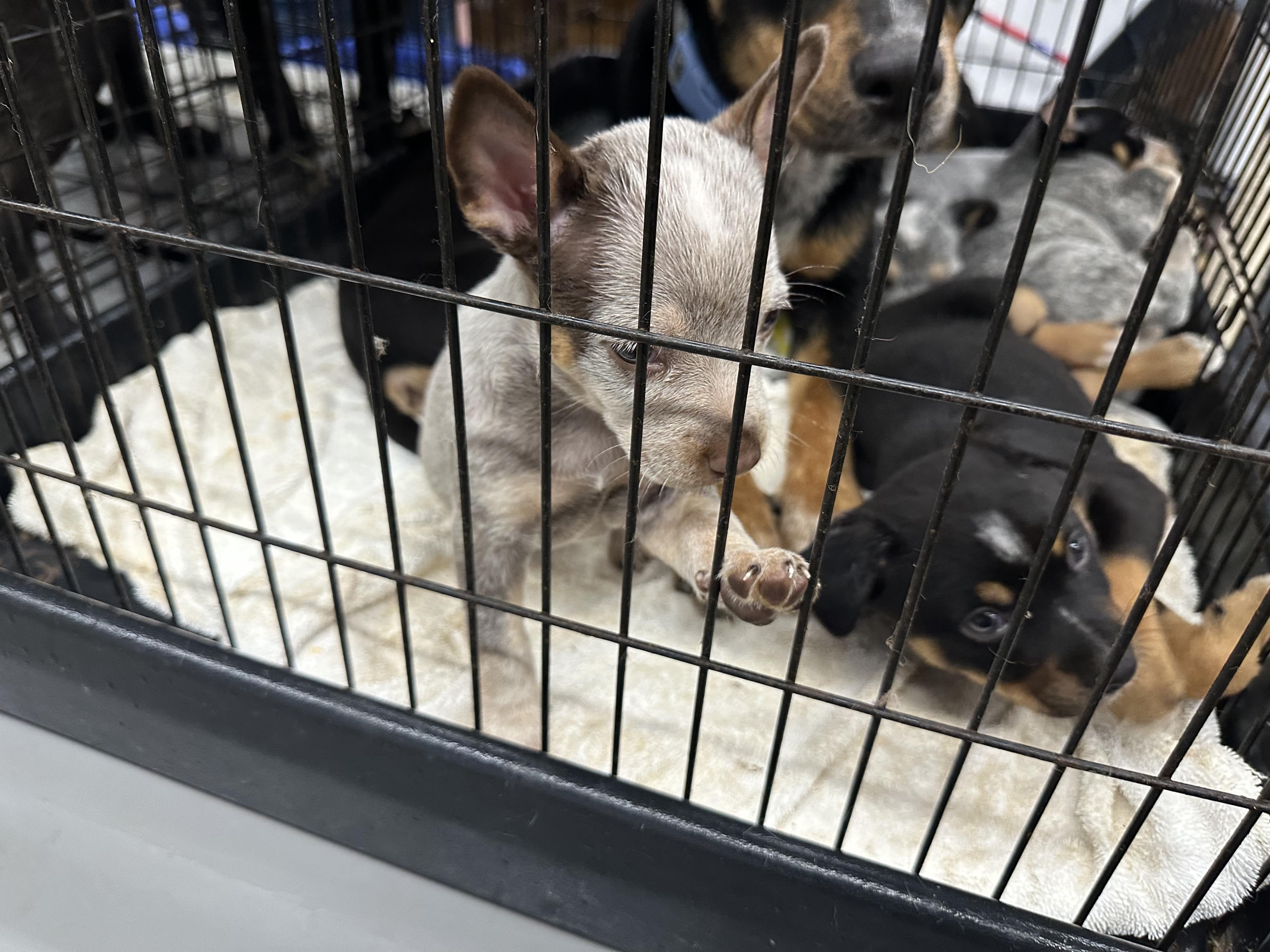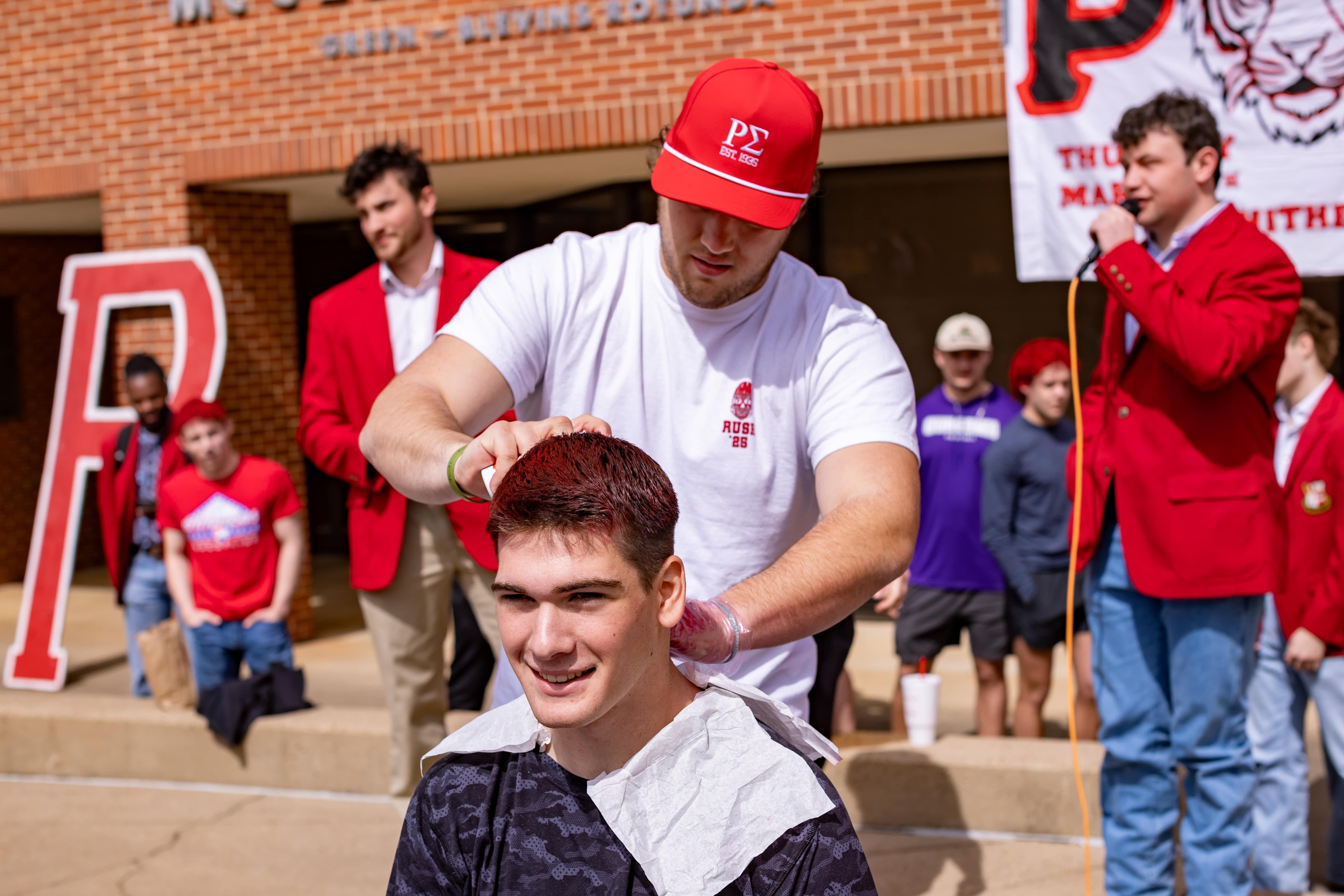Ten students from Ouachita Baptist University’s J.D. Patterson School of Natural Sciences spent their summer months participating in various research or internship opportunities to learn more about their projected fields of study, while gaining practical experience.
While off-campus research is not required as part of their curriculum, Dr. Tim Knight, dean of the School of Natural Sciences, said “faculty members strongly encourage students “to apply for such opportunities because of the great experiences they produce.”
Rebekah Ward, a senior biology major from Little Rock, Ark., participated in a research project of retrospective study at Arkansas Children’s Hospital in Little Rock, under the Summer Science Program. It was co-sponsored by Arkansas Children’s Hospital Research Institute and University of Arkansas for Medical Sciences.
Studying blood transfusion practices in critically ill pediatric patients, her main job was data collection from past medical records. This included clinical measurements of systemic oxygen delivery pre- and post-transfusion; research of demographic information, mortality and morbidity of her research population; and writing abstracts, sending data collections to statisticians and preparing PowerPoint presentations.
Ward said that after shadowing several specialists, she realized the importance of her classes and will be approaching this semester with greater enthusiasm to fully dedicate herself to academics.
The opportunity gave her more than just a renewed appreciation for her schoolwork, however. “Watching a patient gradually heal despite the dire circumstances was profound and inspiring,” Ward said.
Jason Stevenson, a senior biology major from Guy, Ark., also held a research position at Arkansas Children’s Hospital. His main job was assisting a physician on his clinical research project, in which he studied medical records of patients undergoing surgery for clinical heart diseases.
Sarah Bishop, a senior chemistry major from Paron, Ark., and Sarah Carr, a senior biology major from Cherokee Village, Ark., both spent their summer doing research at UAMS in Little Rock, through the International Development Awards Networks of Biomedical Research Excellence summer research program.
Bishop conducted research through various in vivo and in vitro experiments, to analyze the cardio toxic effects of an extract on its own and its cardio protective effects against an anti-cancer drug. To do so, Bishop worked with organisms many people would avoid: mice.
For the in vivo experiments (using living organism as the scientific subject), Bishop synthesized the extract and mixed it in the mice’s drinking water. From there, she recorded their water intake, performed ultrasound analysis and assisted in the harvesting of the hearts.
For the in vitro experiments (testing done outside of the living organism), Bishop cultured, split and treated cells with the extract that was synthesized in the lab. She also collected proteins for Western blots and used fluorescent spectroscopy.
Carr researched the effects of a high fat diet and lesion genotypes on endometriosis, a disease that can cause pain and infertility in women. She ran various tests to analyze gene expression levels and amounts of proteins and hormones related to endometriosis.
“It was a humbling experience,” Carr said. “I came into the lab knowing virtually nothing about what I was doing, but with a little help I learned a lot and it was a great experience.”
Other students who held research or internship positions this past summer include: Brynn Alford, a senior biology major from Rogers, Ark.; Ashley Glover, a senior biology major from Stuttgart, Ark.; Tim Horton, a senior physics major from Arkadelphia, Ark.; Crista Riggs, a senior chemistry major from Edmond, Okla.; Dustin Walter, a junior biology major from Marion, Ark.; and Kelsey Willis, a senior chemistry major from Redfield, Ark.
Alford held an internship position in the plant pathology department at the University of Arkansas in Fayetteville. Her main goal was to prove whether a certain class of chemicals thought to deter insects was produced more in plants as a defense mechanism, in response to being fed on by insects.
“In simple terms, I was in the lab full-time pipetting, staining things, grinding things and measuring things,” Alford said.
Horton conducted research in the departments of chemistry and molecular cell biology at the University of California, Berkeley.
“My research project was concerned with regulating a protein in the human body in order to treat autoimmune disease, including rheumatoid arthritis,” said Horton.
Riggs also conducted research out of state at the University of Oklahoma Health Sciences Center in Oklahoma City, where she studied ovarian cancer cells through various experiments.
Willis spent her summer at the National Center for Toxicological Research in Jefferson, Ark., where she worked to characterize 26 strains of Staphylococcus aureua, a bacterium generally found in the respiratory tract or on the skin. She was in charge of all lab work and helped decide the best ways to proceed with projects.






